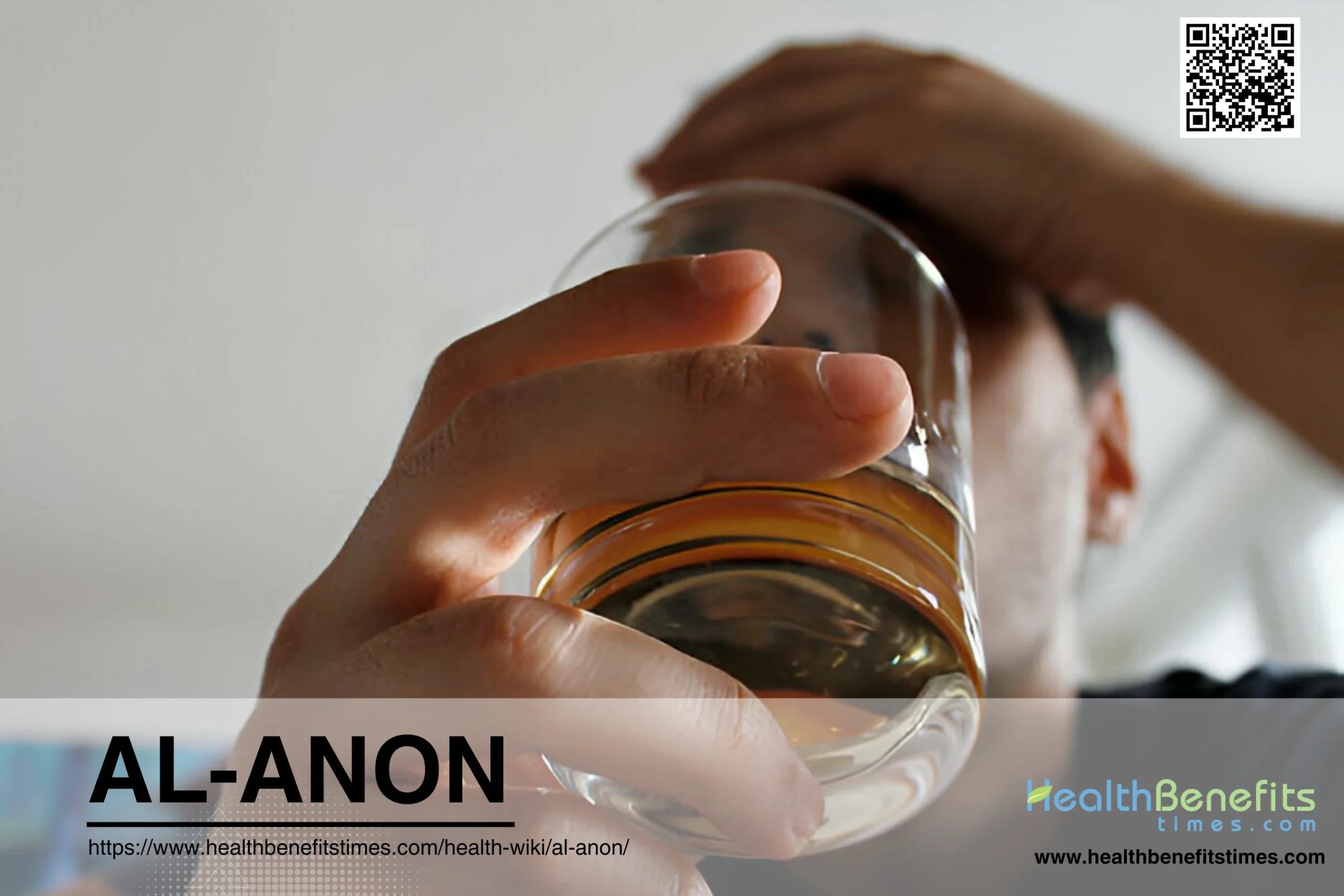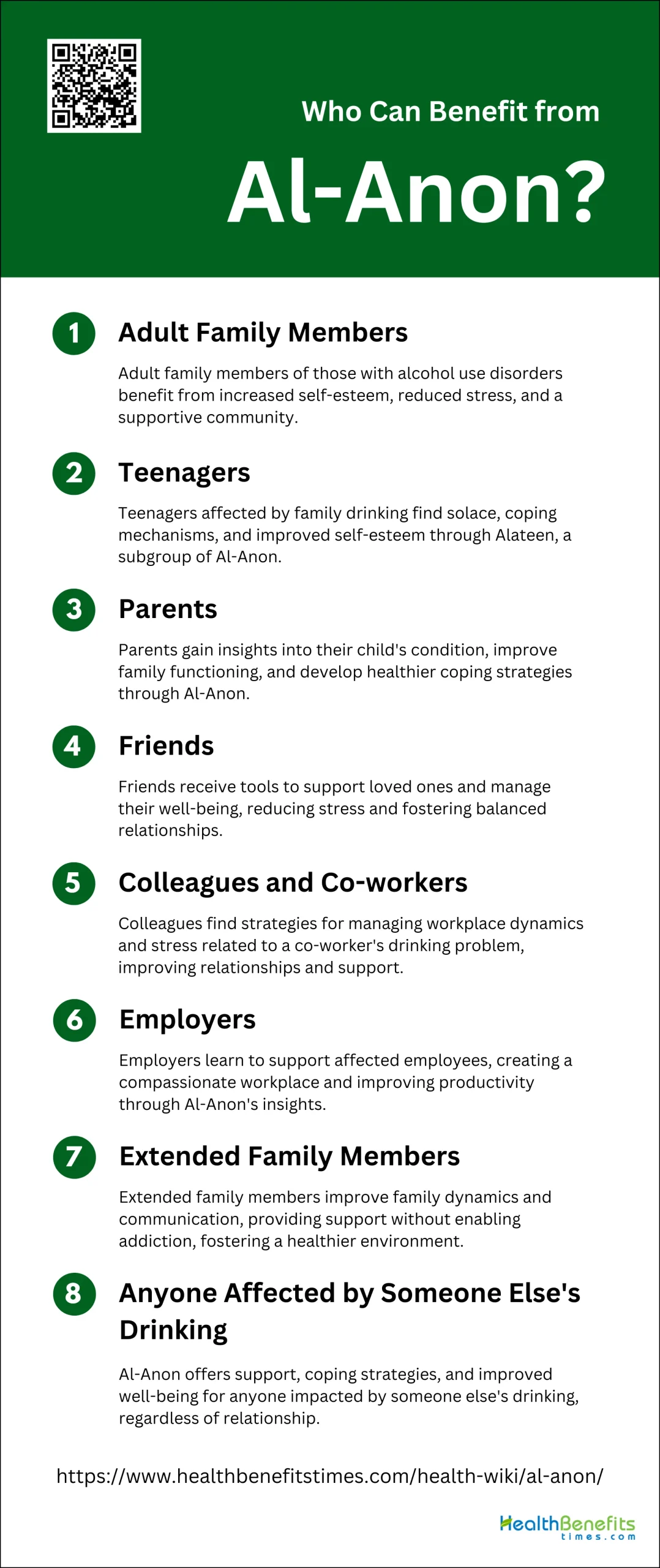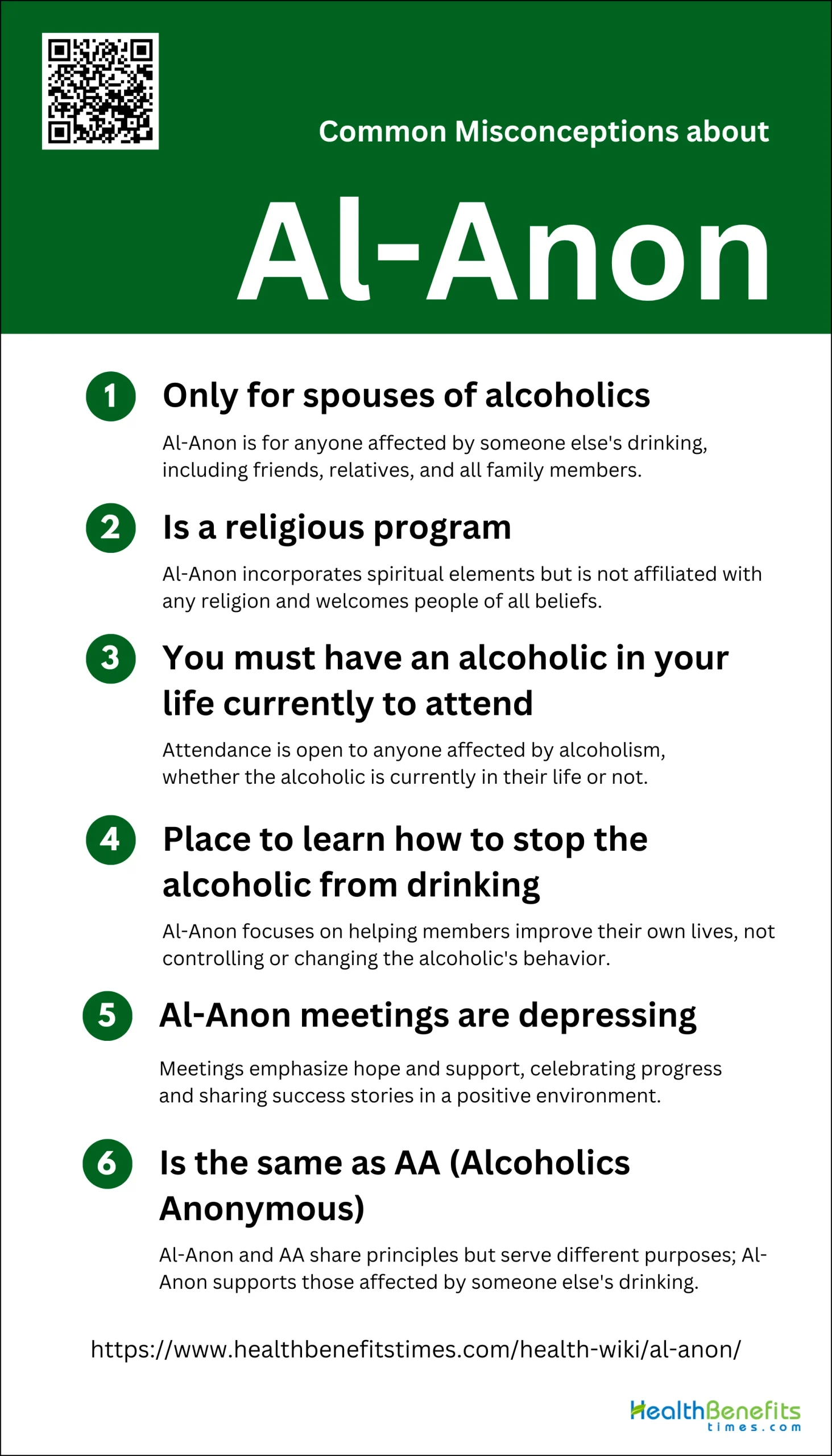 Al-Anon is a mutual support program designed for people whose lives have been affected by someone else’s drinking. Founded in 1951 by Anne B. and Lois W., the wife of Alcoholics Anonymous co-founder Bill W., Al-Anon provides a supportive community where family members and friends of alcoholics can share their experiences and apply the Al-Anon principles to bring positive changes to their lives, regardless of whether the alcoholic seeks help or acknowledges their drinking problem. The program follows a 12-step approach similar to Alcoholics Anonymous but focuses on helping individuals cope with the impact of a loved one’s alcoholism rather than addressing the drinker’s behavior directly. Meetings are confidential, free of charge, and open to anyone affected by another’s drinking, offering a safe space for sharing and support.
Al-Anon is a mutual support program designed for people whose lives have been affected by someone else’s drinking. Founded in 1951 by Anne B. and Lois W., the wife of Alcoholics Anonymous co-founder Bill W., Al-Anon provides a supportive community where family members and friends of alcoholics can share their experiences and apply the Al-Anon principles to bring positive changes to their lives, regardless of whether the alcoholic seeks help or acknowledges their drinking problem. The program follows a 12-step approach similar to Alcoholics Anonymous but focuses on helping individuals cope with the impact of a loved one’s alcoholism rather than addressing the drinker’s behavior directly. Meetings are confidential, free of charge, and open to anyone affected by another’s drinking, offering a safe space for sharing and support.
Who Can Benefit from Al-Anon?
Here is a list of individuals who can find solace and understanding within Al-Anon’s welcoming embrace:
1. Adult Family Members
Adult family members of individuals with alcohol use disorders can significantly benefit from Al-Anon. Participation in Al-Anon helps them improve their quality of life and better handle problems related to the drinker. Studies have shown that sustained attendance in Al-Anon leads to increased self-esteem, reduced stress, and improved overall well-being. Additionally, Al-Anon provides a supportive community where adult family members can share their experiences and receive emotional support, which is crucial for their mental health and coping strategies.
2. Teenagers
Teenagers who are affected by a family member’s drinking can find solace and support in Al-Anon, specifically through Alateen, a subgroup designed for younger members. Alateen provides a safe space for teenagers to express their feelings and learn coping mechanisms. Participation in these groups can help teenagers improve their self-esteem, reduce feelings of isolation, and develop healthier relationships with their family members. The supportive environment of Alateen helps teenagers navigate the challenges of living with an alcoholic family member, promoting better mental health and resilience.
3. Parents
Parents of individuals with alcohol use disorders can benefit from Al-Anon by gaining insights into their child’s condition and learning how to manage their own emotional responses. Al-Anon offers parents a platform to share their experiences and receive guidance on how to support their child without enabling their addiction. Studies have shown that parents who attend Al-Anon report better family functioning and improved quality of life. The program helps parents develop healthier coping strategies and fosters a sense of community and understanding among members.
4. Friends
Friends of individuals struggling with alcohol use can also benefit from Al-Anon. The program provides friends with the tools to support their loved ones while maintaining their own well-being. Al-Anon helps friends understand the nature of addiction and offers strategies to cope with the associated stress and emotional turmoil. By participating in Al-Anon, friends can improve their own mental health, reduce feelings of helplessness, and foster more supportive and balanced relationships with the drinker.
5. Colleagues and Co-workers
Colleagues and co-workers of individuals with alcohol use disorders can find Al-Anon beneficial in managing workplace dynamics and reducing stress. Al-Anon provides a supportive environment where they can discuss their concerns and learn effective ways to handle work-related issues stemming from a colleague’s drinking problem. Participation in Al-Anon can lead to improved workplace relationships, better stress management, and a more supportive work environment. The program equips colleagues with the knowledge and skills to address the impact of alcoholism in the workplace constructively.
6. Employers

Employers can benefit from Al-Anon by gaining a better understanding of how to support employees affected by alcohol use disorders. Al-Anon offers employers insights into the challenges faced by their employees and provides strategies to create a supportive and accommodating work environment. By attending Al-Anon, employers can learn how to address issues related to alcohol use in the workplace effectively, leading to improved employee well-being, reduced absenteeism, and enhanced overall productivity. The program also helps employers foster a more compassionate and understanding workplace culture.
7. Extended Family Members
Extended family members, such as grandparents, aunts, uncles, and cousins, can also benefit from Al-Anon. The program helps them understand the complexities of addiction and provides a supportive community where they can share their experiences and receive guidance. Participation in Al-Anon can lead to improved family dynamics, better communication, and a stronger support network for the individual struggling with alcohol use. Extended family members can learn how to offer support without enabling the addiction, contributing to a healthier family environment.
8. Anyone Affected by Someone Else’s Drinking
Al-Anon is designed to support anyone affected by someone else’s drinking, regardless of their relationship to the drinker. The program offers a safe and supportive environment where individuals can share their experiences, learn coping strategies, and receive emotional support. Studies have shown that participation in Al-Anon leads to improved mental health, reduced stress, and better overall well-being. The program’s accessibility and community-based approach make it a valuable resource for anyone seeking support in dealing with the challenges of living with or caring for someone with an alcohol use disorder.
Common Misconceptions about Al-Anon
Al-Anon is often misunderstood, with many people harboring incorrect assumptions about its purpose and practices. This support network, designed for the friends and family members of alcoholics, is sometimes mistaken for a subsidiary of Alcoholics Anonymous or misconceived as a group that offers direct intervention for alcoholics. Below, we will dispel some of the most common misconceptions about Al-Anon.
1. Only for spouses of alcoholics
A common misconception about Al-Anon is that it is exclusively for spouses of alcoholics. In reality, Al-Anon is open to anyone affected by someone else’s drinking, including parents, children, siblings, friends, and other relatives. The program provides support for all individuals who struggle with the impact of a loved one’s alcoholism, regardless of their relationship to the drinker. This inclusivity allows a diverse group of people to share their experiences and find mutual support, fostering a community where everyone can learn from each other and work towards personal growth and healing.
2. Is a religious program
Another misconception is that Al-Anon is a religious program. While Al-Anon does incorporate spiritual elements, it is not affiliated with any specific religion and welcomes people of all faiths or no faith at all. The program encourages members to find a “Higher Power” of their own understanding, which can be interpreted in a way that is meaningful to each individual. This flexibility ensures that Al-Anon remains accessible and supportive to a wide range of people, regardless of their religious beliefs or lack thereof.
3. You must have an alcoholic in your life currently to attend

Many people mistakenly believe that they must currently have an alcoholic in their life to attend Al-Anon meetings. However, Al-Anon is for anyone who has been affected by someone else’s drinking, whether the alcoholic is still in their life or not. This includes individuals who have experienced the impact of alcoholism in the past and are seeking support to deal with lingering effects. The program provides a safe space for members to share their experiences and find healing, regardless of their current situation.
4. Place to learn how to stop the alcoholic from drinking
A prevalent misconception is that Al-Anon is a place to learn how to stop the alcoholic from drinking. In fact, Al-Anon’s focus is on helping members improve their own lives, rather than trying to control or change the alcoholic’s behavior. The program teaches individuals to detach with love, set healthy boundaries, and focus on their own well-being. By shifting the focus from the alcoholic to themselves, members can find peace and recovery, regardless of whether the alcoholic continues to drink.
5. Al-Anon meetings are depressing
Some people believe that Al-Anon meetings are depressing, but this is not the case. While members do share their struggles and challenges, the overall tone of the meetings is one of hope and support. Members celebrate their progress, share success stories, and offer encouragement to one another. The sense of community and mutual understanding helps to create a positive and uplifting environment where individuals can find strength and inspiration to continue their journey of recovery.
6. Is the same as AA (Alcoholics Anonymous)
Another common misconception is that Al-Anon is the same as Alcoholics Anonymous (AA). While both programs are based on the Twelve Steps and share similar principles, they serve different purposes. AA is specifically for individuals who are struggling with alcoholism and seeking sobriety, whereas Al-Anon is for those affected by someone else’s drinking. Al-Anon provides a separate space for individuals to focus on their own recovery and well-being, without the presence of the alcoholic, allowing them to address their unique challenges and needs.



